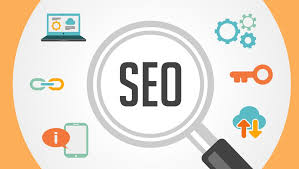The Importance of Crawling in SEO
Search Engine Optimization (SEO) is a crucial aspect of digital marketing, and one key component of SEO is crawling. Crawling is the process by which search engine bots discover and index web pages to make them searchable for users.
When a search engine bot crawls a website, it follows links from one page to another, gathering information about each page it visits. This information is then used to determine the relevance and ranking of the pages in search results.
Proper crawling ensures that search engines can find and index all relevant pages on a website, which is essential for improving visibility and driving organic traffic. Without effective crawling, valuable content may go unnoticed by search engines, resulting in lower rankings and decreased visibility.
There are several factors that can impact crawling efficiency, such as site structure, internal linking, XML sitemaps, and robots.txt directives. By optimizing these elements, website owners can help search engine bots crawl their sites more effectively and improve their chances of ranking higher in search results.
In conclusion, crawling plays a vital role in SEO by ensuring that web pages are discoverable and indexable by search engines. Website owners should prioritize optimizing their sites for efficient crawling to enhance their online visibility and attract more organic traffic.
Understanding SEO Crawling: 8 Key Questions Answered
- What is crawling in SEO?
- Why is crawling important for SEO?
- How do search engine bots crawl websites?
- What factors can affect crawling efficiency?
- How can I improve the crawling of my website?
- What is the role of internal linking in crawling?
- Do all web pages need to be crawled for SEO purposes?
- Can improper crawling negatively impact a website’s SEO performance?
What is crawling in SEO?
Crawling in SEO refers to the process by which search engine bots systematically navigate and analyze web pages on the internet. These bots, also known as crawlers or spiders, visit websites to gather information about their content and structure. By crawling a website, search engines can index its pages and determine their relevance to specific search queries. This indexing process is crucial for ensuring that web pages are included in search engine results pages (SERPs) when users conduct relevant searches. In essence, crawling is the foundational step in SEO that allows search engines to understand and organize the vast amount of information available online for users to access easily.
Why is crawling important for SEO?
Crawling is essential for SEO because it allows search engine bots to discover and index web pages, making them accessible to users in search results. When a website is crawled effectively, search engines can understand its content, structure, and relevance, which influences its ranking in search results. Without proper crawling, valuable pages may not be indexed or ranked appropriately, leading to decreased visibility and organic traffic. By ensuring that a website is easily crawlable and optimized for search engine bots, website owners can improve their chances of ranking higher and attracting more visitors through organic search.
How do search engine bots crawl websites?
Search engine bots crawl websites by following a process known as web crawling. These bots, also referred to as spiders or crawlers, start by identifying a list of URLs to visit, which can include sitemaps, links from other websites, and previously crawled pages. Once a bot accesses a webpage, it analyzes the content and follows the links within that page to discover new URLs to crawl. This iterative process continues as the bot navigates through different pages on the website, collecting information about each page’s content and structure. By systematically crawling websites in this manner, search engine bots index web pages and make them searchable for users when they perform relevant queries.
What factors can affect crawling efficiency?
Several factors can impact crawling efficiency in SEO. The structure of a website, including its navigation and internal linking, plays a significant role in how effectively search engine bots can crawl and index its pages. Additionally, the presence of XML sitemaps that provide a roadmap of the site’s content and robots.txt directives that control bot access can influence crawling efficiency. Other factors such as page load speed, server responsiveness, and mobile-friendliness also play a part in determining how efficiently search engines can crawl a website. By addressing these factors and optimizing them for better crawling performance, website owners can improve their chances of achieving higher rankings and visibility in search engine results.
How can I improve the crawling of my website?
To improve the crawling of your website for SEO purposes, there are several key strategies you can implement. Firstly, ensure that your website has a clear and logical site structure with intuitive navigation to help search engine bots easily crawl and index all pages. Utilize internal linking effectively by including relevant anchor text and linking between related pages to guide bots to important content. Create and submit an XML sitemap to search engines, outlining the structure of your site and helping bots discover all pages efficiently. Additionally, optimize your robots.txt file to direct bots on which pages to crawl and which to avoid. Regularly monitor your website’s crawl status using tools like Google Search Console to identify and fix any crawling issues promptly. By implementing these best practices, you can enhance the crawling process of your website and improve its visibility in search engine results.
What is the role of internal linking in crawling?
Internal linking plays a crucial role in crawling for SEO purposes. By strategically linking pages within a website, webmasters can guide search engine bots to discover and index important content more effectively. Internal links create pathways for search engine crawlers to navigate through the site, ensuring that all relevant pages are crawled and indexed. Additionally, internal linking helps establish the hierarchy and structure of a website, indicating to search engines which pages are most important. This boosts the overall visibility and ranking potential of the website in search engine results pages. In essence, internal linking is a powerful tool that can enhance crawling efficiency and ultimately improve the SEO performance of a website.
Do all web pages need to be crawled for SEO purposes?
When it comes to SEO, not all web pages necessarily need to be crawled for optimal results. While it is beneficial for search engine bots to crawl and index important pages containing valuable content, some pages, such as privacy policies, terms of service, or duplicate content pages, may not require indexing. By using techniques like robots.txt directives or meta robots tags, website owners can control which pages are crawled and indexed by search engines, focusing on prioritizing the visibility of key content that aligns with their SEO goals and strategies. Ultimately, the goal is to ensure that search engines can efficiently discover and index relevant pages that contribute to improving the website’s overall search visibility and ranking performance.
Can improper crawling negatively impact a website’s SEO performance?
Improper crawling can indeed have a negative impact on a website’s SEO performance. When search engine bots encounter difficulties crawling a site due to issues like broken links, duplicate content, or poor site structure, it can result in important pages not being indexed or ranked properly. This can lead to decreased visibility in search results, lower organic traffic, and ultimately hinder the website’s overall SEO performance. Ensuring that a website is easily crawlable by addressing crawling issues is essential for maximizing its potential to rank well and attract organic traffic from search engines.




